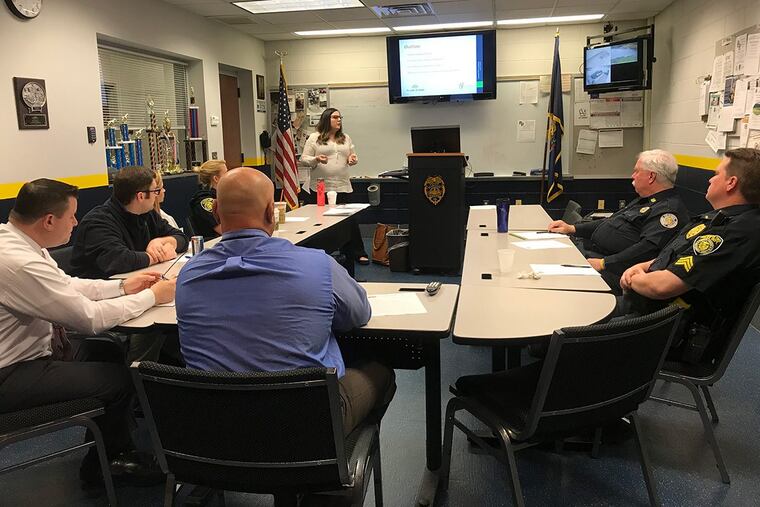Local police departments receive autism training
The Center for Autism & Ruttenberg Autism Center offers a training to prepare officers for interactions they may have with individuals with Autism Spectrum Disorder.

In a six year span, the number of pre-adjudicated charges associated with autistic individuals more than doubled, according to latest Pennsylvania Autism Census Update from 2014.
Seeing a need for education, The Center for Autism & Ruttenberg Autism Center began offering a training, accredited by the state, to prepare officers for interactions they may have with individuals with Autism Spectrum Disorder. This included how to effectively navigate those interactions for the safety and welfare of the individual and the officer.
The Center has trained the Conshohocken Police Department and recently worked with the Plymouth Township Police Department. We checked in with Katie Greble, Training Manager at The Center for Autism & Ruttenberg Autism Center, and Lieutenant Karen Mabry from Plymouth Township Police Department to learn more about the training.
What recent incidences between law enforcement and people with ASD have been of concern?
Greble: Recently, we have seen incidences in the media of unnecessary arrests, and extreme use of force, which may have been able to be avoided if the officer could recognize the symptoms of autism. Elopement and wandering cases that end up with an individual missing or found deceased are also very concerning.
What are the challenges for law enforcement when interacting with someone with ASD?
Greble: People with autism don't look any different than their neurotypical peers, so if you are not familiar with the diagnosis and the symptoms, it can be hard to detect. Additionally, police are trained to respond in a specific manner, and if it is a crisis, they often don't have the opportunity to stop and evaluate the behavior of an individual that might be signs there is something else going on.
Mabry: Recognizing and being able to communicate effectively with someone on the spectrum, whether it's just saying hello to someone we meet during the course of our day or interacting with them on a call for service.
Do you expect more police departments will be interested in type of training? Why is it important?
Greble: Yes, we continue to get requests from police departments across the state that are interested in our training. With the increased awareness of ASD in society and in mainstream media, people are recognizing that people with autism are part of their community. After this training, officers have new skills and a new awareness, which ensures they can continue to keep themselves and members of the community safe.
Training on autism is also beneficial other first responders, in addition to other professionals who encounter or serve people with autism. We have been able to help address specific issues and need for all types of groups through trainings like this.
Mabry: I do believe other police departments will be interested in trainings like this. It allows us to better serve all members of our community, especially members with autism. It gives us a better understanding of some of the challenges they face on a daily basis and methods we can use to make our interactions less stressful for everyone.
What do you think the officers took away from the training?
Mabry: In addition to traditional methods of communication, officers learned ways to use other methods, too. We learned the importance of being direct, using simple language, so as to not confuse someone with ASD.
What general advice do you have for the general public when they first meet someone with ASD?
Greble: Take an extra minute to step back and assess each person to see their individual needs in that moment. Do not assume because they are not making eye contact that they are being rude or defiant. Additionally, understanding that a person's expressive language – how they talk to you – may not match their receptive language – how they understand what you are saying.